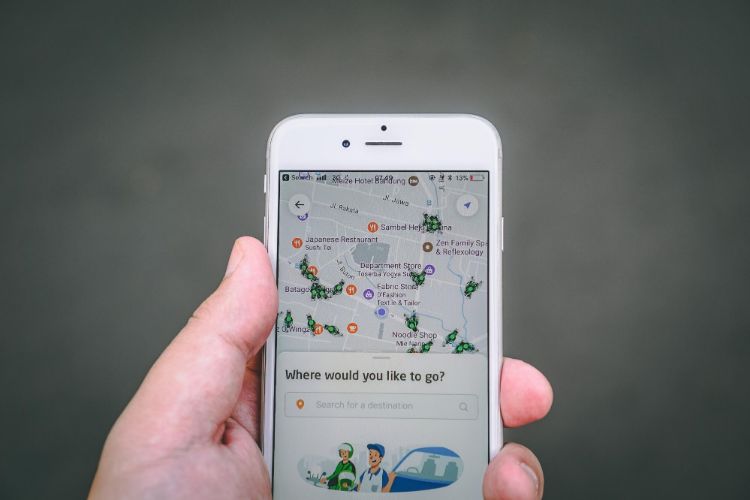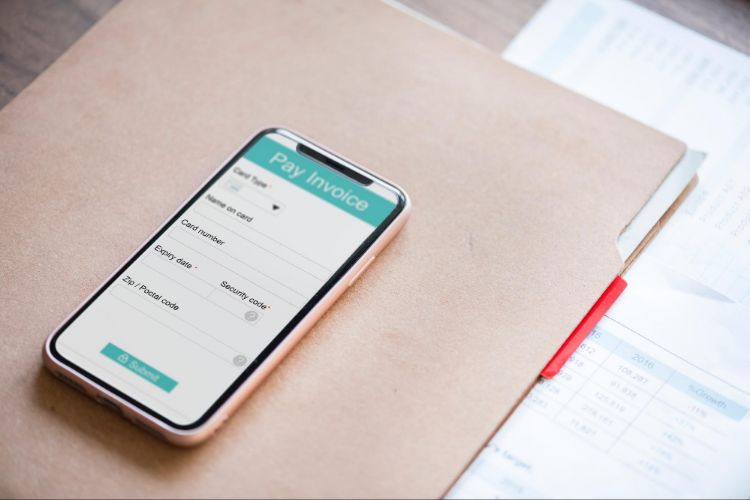In an increasingly digital society, many of the world’s 2.71 billion smartphone users can complete nearly any household chore in just a few taps and swipes.
Our need to accomplish tasks quickly and efficiently has given rise to digitally-sourced products and services. There’s an app for almost anything nowadays, which means there’s less of a need to spend time making calls or visiting shops in person.
This is a benefit to both customers and the businesses that serve them—all players across the board can find themselves with extra time to spend on more meaningful activities.
Take job booking for an example.
Manual booking systems are time-consuming. They’re bound to eat up precious working hours, whether you have a dedicated person manning your phone lines, or divide the job of fielding calls to tradies who are busy with other tasks.
No matter the system you have in place, manual booking eats up an opportunity cost for your business—either the salary of an administrative worker, or the productivity of staff members who are forced to multitask.
In this article, we’ll talk about how job booking apps can save you time and money. Not only are they a feature that your customers have come to expect, but they’re a necessary tool for businesses that want to scale.
Read on to learn more about this set of digital tools, and how they can give your tradie business a well-deserved boost.
What Makes for a Successful Job Booking App?
- Convenience
- Accuracy
- Design and Information Capturing
- Project management integration
- Integration
- Payments and Invoices
- Insights
In this first section, we’ll take a look at the features that make for a valuable job booking application. There are plenty of options on the market, so keep the following in mind:
1. Convenience
The fact that mobile users are spending 57% of their digital time on apps is a telltale sign that it’s high time for businesses to offer a faster and more intuitive option for booking.
A booking app should offer a more convenient experience for you and your clients, and the first and most important step towards this should be eliminating your dependence on fielding calls.
A valuable app saves you and your customers time by allowing them to explore your offerings and policies on their own time. It integrates with your existing digital assets (usually your website) to allow customers to book a time, date, and package of services while your information is fresh in their minds.
Because booking systems incorporate features like reminders, the chances of no-shows are significantly decreased. Cancellations are easier to manage as well, since online bookings automatically mark your free dates as available for the convenience of both your staff and potential clients.
Now, all of this isn’t to say that you should drop phone calls altogether—after all, some concerns are best addressed through a conversation. Simply invest in an app that does away with the need to spend time explaining what can be written down instead.

2. Accuracy
A major frustration that comes with manual booking is the risk of overbooking, double-booking, and schedule mix-ups. To err is human—which is part of the reason why we recommend turning to technology.
When you find a good job booking app, you automatically invest in a backend that can track and organise your schedule with precision. This means all incoming appointments are automatically logged in a calendar, which you should be able to view as a well-presented dashboard.
A well-engineered system reduces the likelihood of errors, and removes the need to pour attention and brain power into managing (what should be) a very busy calendar.
Booking apps with sync-to-cloud features are also useful for backup purposes. Locally hosted files can be lost or corrupted (and don’t even get us started on paper copies!) so it’s good for record keeping if you and your clients can restore important data from your own respective devices.
3. Design and Information Capturing
Modern booking forms are leagues ahead of the inquiry forms you’ve probably grown used to. Instead of the generic “Contact Us!” forms you’d find on websites from the 2000’s, forms built with a quality job booking app are well-designed, and comprehensive enough to capture all the data that matters when organising a job.
Form design is an attribute that businesses often underestimate. Poorly designed forms suggest a lack of professionalism. Conversely, forms that look great and flow well are a rewarding sight for the people filling them out.
Opt for a tool that gives you the freedom to design and customise forms at your leisure. From there, you can build booking interfaces that match your brand’s colour scheme, and are worded to suit your business’ voice.
Likewise, it’s important for the forms you design to capture all the information you’ll be needing to service a client. Before you ask, no, “Send us a message,” is not a professional way for a tradie business to source leads.
You can build them to suit your preferred onboarding scheme: either collect the bare minimum needed to enter into a call or send a representative, or ask for all the details you’d need to create an invoice.
The data points you collect can also be used in later marketing efforts, as a basis to check where your clients are coming from, what characteristics they share, and other useful market insights.
4. Integration
Many of the apps you’ll see in use today are capable of linking together to form an ecosystem: a network of tools that complement each other’s functions and allow users to navigate through them with ease.
For example, a number of booking apps connect social media log-ins, making it easier for visitors enter their data. Your customers get an enhanced user experience when other methods of connecting with your business are made available.
Alternatively, embedding social media on your booking app also creates more opportunities to sell and market. See how it works for Expedia, an all-in-one flight and accommodation service. For an action as straightforward as making a referral on social media, site visitors get discounts of up to 40%.
A social media link-up also allows your team to collect consumer data and re-market your services online using this information. Taking advantage of platforms people know and love is now vital for business strategy. It’s as easy as advertising your business on spaces such as Facebook Marketplace.
Furthermore, sharing customer reviews across various platforms is an effective way to draw potential clients in. Liking, commenting, and sharing are modern advertising pillars that now hold just as much weight as word-of-mouth.
5. Payments and Invoices
An attractive feature of job booking apps is ease of payment. Clients no longer have to make physical trips to an office or bank, and can instead rely on digital methods. In 2018, PayPal processed a whopping 9.9 billion payments from 286 million active users. Give your visitors options—trust us, they’ll want them.

Other essential functions might include basic notifications, so you can remind customers to pay on time and keep track of what their dues via an automated system. To improve customer loyalty, you could also explore apps that offer text message and email invoicing.
Lastly, your business can easily increase cash flow and prevent no-shows by incorporating a pay-now feature or staggered rates.
6. Insights
Analytics tools are available for nearly any type of network, and is something your business shouldn’t overlook. Beyond keeping track of how many reservations you procure in a month, you’ll also want to use these instruments to study consumer behavior.
By collecting insights, you can grow your business and tweak marketing strategies according to when clients book most frequently and what their general preferences are. As a matter of fact, insight-driven businesses are becoming increasingly popular, growing in number at an average of over 30% per annum.

Applying data into your business approach begins with simple analytics. By collecting data and sorting through customer traits (like where your customer lives and how often they book repairs) you can suggest similar booking options that align with their tastes. Extend discounts and rewards to entice on-the-fence customers to take you up on these suggested offers.
One restaurant booking app, Open Table, does an excellent job of incorporating insights into how its service functions. It matches its visitors with over 40,000 dining experiences that suit their preferences. It also employs an alert function that notifies interested diners on cancellations at popular restaurants.
Your business can easily replicate the success of apps like Open Table by playing to what users enjoy most.
The best job booking apps to consider
1. Acuity Scheduling
For a highly customised booking procedure, Acuity Scheduling is a go-to investment. Depending on your clientele, you can choose to enable recurring appointments, add-on services, and advance or short-notice limitations.
What makes Acuity far superior to run-of-the-mill scheduling apps is its test-run feature. To test its claims of being completely adaptable to any business, Acuity provides visitors with a full trial operation of its services on fictional sites. It also allows you to watch as people book in real time, and links up with a ton of other online tools.
Acuity is optimised across all types of devices and supports popular calendar apps such as Google Calendar, iCloud, and Outlook, and more.
2. Hipages
Home Improvement Pages, otherwise known as hipages, is a one-stop shop for qualified tradespeople. Targeted towards subcontractors seeking work, general contractors in need of a helping hand, and casual visitors looking to hire, hipages has something in store for everyone.
It promises a seamless tradie-homeowner experience by offering multipurpose features that include customisable profiles, project management, payment and invoicing, and two-way job notifications.
Visitors get to select tradies best-suited to them based on verified recommendations and a quoting system. That being said, hipages is an excellent starting point for up-and-coming tradies who want to establish themselves in the industry using handy booking tools.
3. Airtasker
For exceptionally busy homeowners, Airtasker is the largest open-source marketplace of choice. It’s perfect for tradies who are looking to up their up their game by ticking off to-do lists with quickfire bookings.
Though it’s up to a Tasker to seek tradies of their choice, your business can easily throttle itself as most-wanted by becoming verified. Exceeding its customisable booking tools, Airtasker offers up qualification badges to its most qualified tradies.
In addition, its payment scheme functions similarly to PayPal and boasts a user-friendly interface that is just as secure. Tradies are also covered by insurance.
4. HubSpot
A goldmine for inbound strategies, HubSpot hosts not only a marketing, sales, and service hub, but manages your booking as well. Its advanced Meetings Tool syncs up with your Google or Office 365 calendar, and places booking decisions in the hands of your prospects—but at your best availability.
HubSpot’s group and round-robin scheduling reinforces a collaborative environment that gets everyone involved. Similarly, HubSpot is just as powerful a tool for individuals. It automatically creates records for new connections, allowing your business to further expand its database.
Conclusion
Modern enterprises demand a need for online presence. Of the millions of Internet users who own smartphones, over 50% will log on first thing in the morning—what better way to reach out than with a booking app?
More often than not, the key to a successful business is a seamless partnership between accessibility and practicality. Incorporating a booking app into your strategy is an easy solution to otherwise complex scheduling procedures, and an excellent method of improving user experiences.








